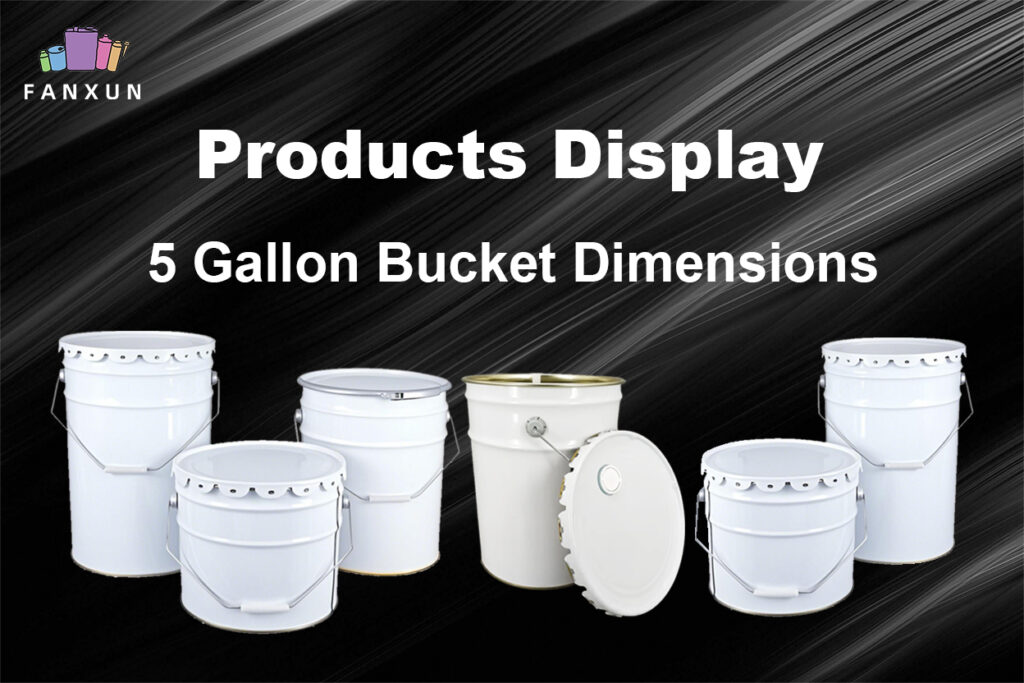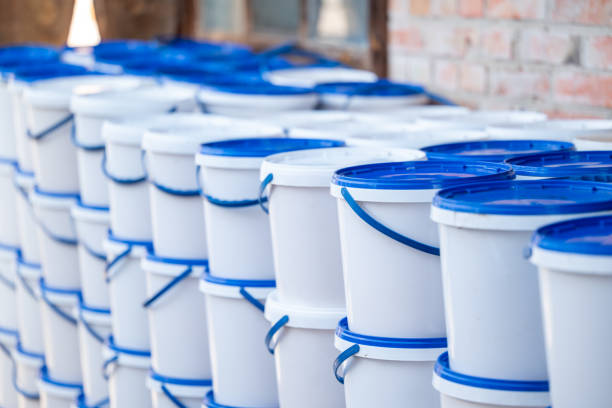Tin cans have a high status in the modern supply chain. The sealing and durability of tin cans can protect products during transportation and storage. Sin embargo, con el tiempo, in order to adapt this packaging to meet the needs of industries such as food, pharmaceuticals and chemicals, tin can manufacturers have continued to innovate. Además, the sustainability of tin cans makes them an ideal choice for companies and users. Whether it is to preserve goods or reduce waste, tin cans remain an important part of providing reliable and efficient global trade solutions.
Historical Significance and Durability of Tin Cans
The tin canning process was invented by Frenchman Philippe de Girard, who had British businessman Peter Durand patent the process in 1810. En 1812, he sold his patent to two Englishmen, Bryan Donkin and John Hall, who improved the process and product and established the world’s first commercial canning factory. By 1813, they began to produce the first batch of tin canned food for the Royal Navy. By 1820, tin cans or cans began to be used to hold gunpowder, seeds, etc..
As technology continues to develop, the sealing and anti-corrosion properties of tin cans are not unpopular, allowing families to store seasonal produce and enjoy it all year round. Without tin cans, the storage of most perishable products would face major challenges.
Evolution of Manufacturing Techniques and Materials
Since its inception, the manufacture of tin cans has come a long way.Early tin cans were sealed with a tin-lead alloy welded together, which could cause lead poisoning. In the late 19th century, steel began to replace iron as the material for cans. En 1888, Max Ams invented the overlock seam, and in 1901, the American Can Company was founded, producing 90% of the tin cans in the United States. By the early 1920s, the three-piece design replaced all other cans until technological advances in the 1920s further reduced the cost of cans. At the beginning of the 21st century, there were approximately 600 different types of cans in use, with the most popular being the three-piece design with side seams and two double-seam ends, followed by the two-piece construction, where the sides and bottom are molded in one piece. In modern times, tin can manufacturers have further improved the process by using lightweight materials and efficient production methods, which ensures durability while reducing material costs. These innovations have not only improved the quality of tin cans, but also made them more sustainable.
Durability is a key factor in the supply chain
When you consider the challenges of transporting goods over long distances, the importance of sturdy packaging becomes apparent. Tin cans are resistant to dents, puntas, and other forms of damage that can occur during transport. This resilience ensures that products reach their destination intact, reducing losses for businesses.
When it comes to storage, tin cans perform just as well. They protect the contents from external factors such as moisture, pests, and temperature fluctuations. Whether you are dealing with food, bebidas, or pharmaceuticals, this level of protection is critical. Not surprisingly, industries across the board continue to rely on tin cans for their packaging needs.
Ability to preserve goods for long periods of time
The ability of tin cans to preserve goods for long periods of time sets them apart from other packaging options because they create a sealed environment that blocks air and bacteria from entering. By maintaining the integrity of the contents, they help reduce waste and keep products safe. For the supply chain, this feature is invaluable. Products stored in tin cans can withstand delays, disruptions, and long-term storage without compromising quality.
Practical Benefits of Tin Cans in Modern Supply Chains
Prevents Contamination and Spoilage: Tin cans’ airtight seal prevents contaminants such as bacteria, humedad, and pests from entering the contents. This feature ensures that the product remains safe and fresh for consumption.
Extends the Shelf Life of Perishable Goods: Tin cans excel in extending the shelf life of perishable items. They create a controlled environment that blocks out air and light, two of the main factors that cause food to spoil.
Transport and Storage Efficiency
Stackability and Space Optimization: The design of tin cans makes them highly stackable. Their uniform shape and weight allow you to maximize storage space in warehouses and containers. This efficiency reduces the need for additional storage facilities and reduces overall costs.
Sustainability and Environmental Benefits
Tin cans are the most recyclable packaging. Discarded tin can materials are reused to make new cans. This process conserves natural resources and reduces the environmental impact of production. When you choose tin cans, you support a sustainable cycle that benefits the planet and the economy.
Reduce Waste in Supply Chain Operations
Using tin cans helps reduce waste throughout the supply chain. The durability of tin cans minimizes product damage during transportation, while the long shelf life of tin cans reduces food spoilage. These factors result in fewer items being discarded, which reduces waste management costs. By incorporating tin cans into your operations, you can achieve greater efficiencies and meet sustainability goals.
Meeting Modern Supply Chain Challenges with Tin Cans
Hoy, consumers want packaging that aligns with their environmental values. You can see this shift happening with the growing demand for sustainable products. Tin can manufacturers are responding to this trend by improving production methods. They are focusing on reducing waste and using recycled materials. These efforts make tin cans an ideal choice for businesses that aim to meet consumer expectations.
Innovations that Reduce Carbon Footprint
Reducing carbon emissions has become a priority for the supply chain. Tin cans achieve this through modern production and recycling processes. Tin cans require less energy to manufacture than other packaging materials.
Keeping Products Safe Over Long Distances
With global trade involving shipping goods over very long distances. We need to ensure that products are kept safe throughout the entire transportation process. Tin cans are perfect for this. Its sturdy structure and high-quality sealing properties protect products from rough handling or damage caused by environmental factors. Whether you are transporting food, beverages or pharmaceuticals, tin cans maintain the integrity of the product.
Complying with International Packaging Standards
International trade requires compliance with strict packaging regulations. Tin cans meet these standards due to their durability and safety. They provide a reliable solution for businesses surviving in the complex global market. You can trust that the tin meets requirements for food safety, material quality and environmental impact.
The Future of Tin Cans in an Evolving Supply Chain
You’ll find an increasing shift towards circular economy principles in modern supply chains. This approach focuses on reducing waste by reusing materials and keeping resources in the loop for as long as possible. The tin can fits seamlessly into this model. Its high recyclability ensures that it can be melted down and remade into new cans over and over again without losing quality. This process saves raw materials and minimizes environmental impact.
When you choose a tin can, you actively support a packaging system that aligns with these principles. Tin can manufacturers are following this trend by designing cans that are easier to recycle and contain a higher percentage of recycled material. By integrating tin cans into your supply chain, you can contribute to a more sustainable future while meeting the demands of environmentally friendly consumers.
Preguntas frecuentes
What makes tin cans a sustainable packaging choice?
Tin cans are recyclable, thus saving natural resources and reducing waste. Many tin cans already contain recycled materials, meeting sustainability goals and helping to reduce environmental impact.
How do tin cans help reduce food waste?
Tin cans extend the shelf life of perishable goods by creating a seal. This seal blocks out air, light and contaminants, which are the main causes of spoilage.
How do tin cans contribute to cost-effective shipping?
Tin cans combine durability with lightweight design. This balance reduces shipping costs by reducing the overall weight of the goods being transported. The stackable shape of tin cans also optimizes space in containers, making logistics more efficient and economical.
Can tin cans adapt to modern supply chain technology?
Of course. Tin cans now feature smart packaging technology, such as QR codes and embedded sensors. These innovations allow you to track and monitor products in real time. They increase transparency and improve inventory management in digital supply chains.
What role do tin cans play in global trade?
Tin cans ensure product safety during long-distance transportation. Their sturdy construction protects goods from damage caused by rough handling or environmental factors. They also meet international packaging standards, making them a reliable choice for markets around the world.
How do tin cans support environmentally conscious consumer demand?
Consumers increasingly prefer environmentally friendly packaging. Tin cans meet this demand through their recyclability and use of recycled materials. By choosing tin cans, you align your business with the values of environmentally conscious customers.






















